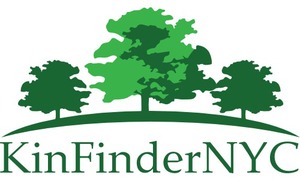The best place to begin when researching your own family history is asking questions of older relatives. We have all lost great opportunities to get information from those who came before us. Do not focus on what is lost, rather on the information and stories that can be preserved for generations to come.
When asking questions, you may hear the following responses:
- "I don't know anything, you should have asked Joe before he died; he knew much more."
- "Why are you bothering to do this? It's all in the past."
- "I don't want to talk about it"
Many people will open up, if you proceed carefully.
Begin by telling the person what you know so they can verify the information - it is easier to revise than to start from scratch.
You may want to make a list of questions ahead of time, but I certainly would not recommend bombarding someone with questions. Rather, use them as an outline to get the person talking or to make sure you have certain questions answered before the meeting is over.
Use an audio/video recorder or some other device to record the conversation, in addition to using a notepad to jot down important facts.
Ask if the person if he or she can identify unknown individuals in photographs.
Make certain to ask not only basic facts about family members (age, marriages, children, etc.), but also occupations, residences, memberships and associations. These can provide useful clues when looking through records.
Examples include:
- Names of towns or regions where the family originated.
- Port of entry in the United States.
- Association with any houses of worship or burial societies.
- Married names of women.
Remember, the best possible interview has the interviewer helping the person get started and then just guiding them as they tell stories & recount facts.




